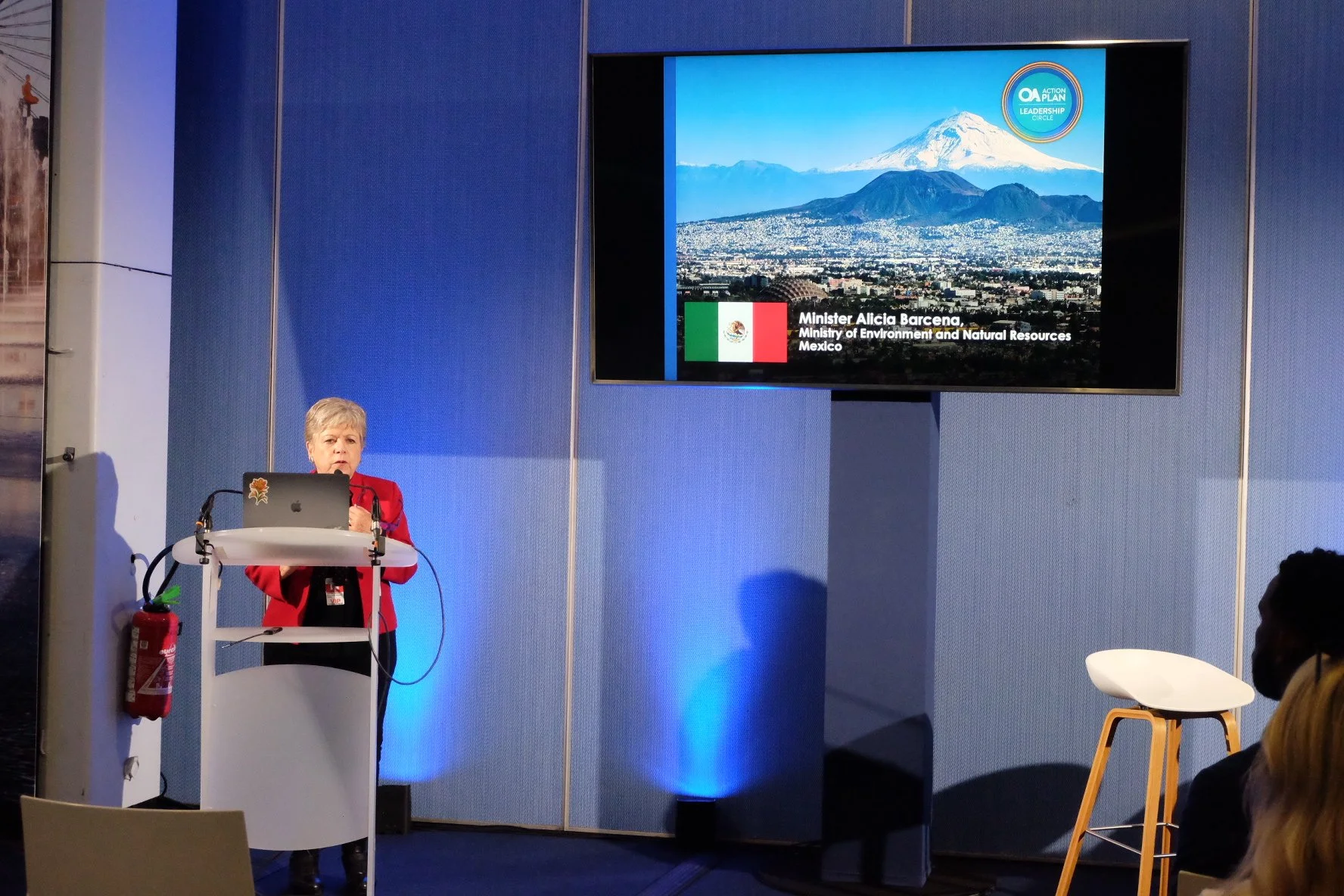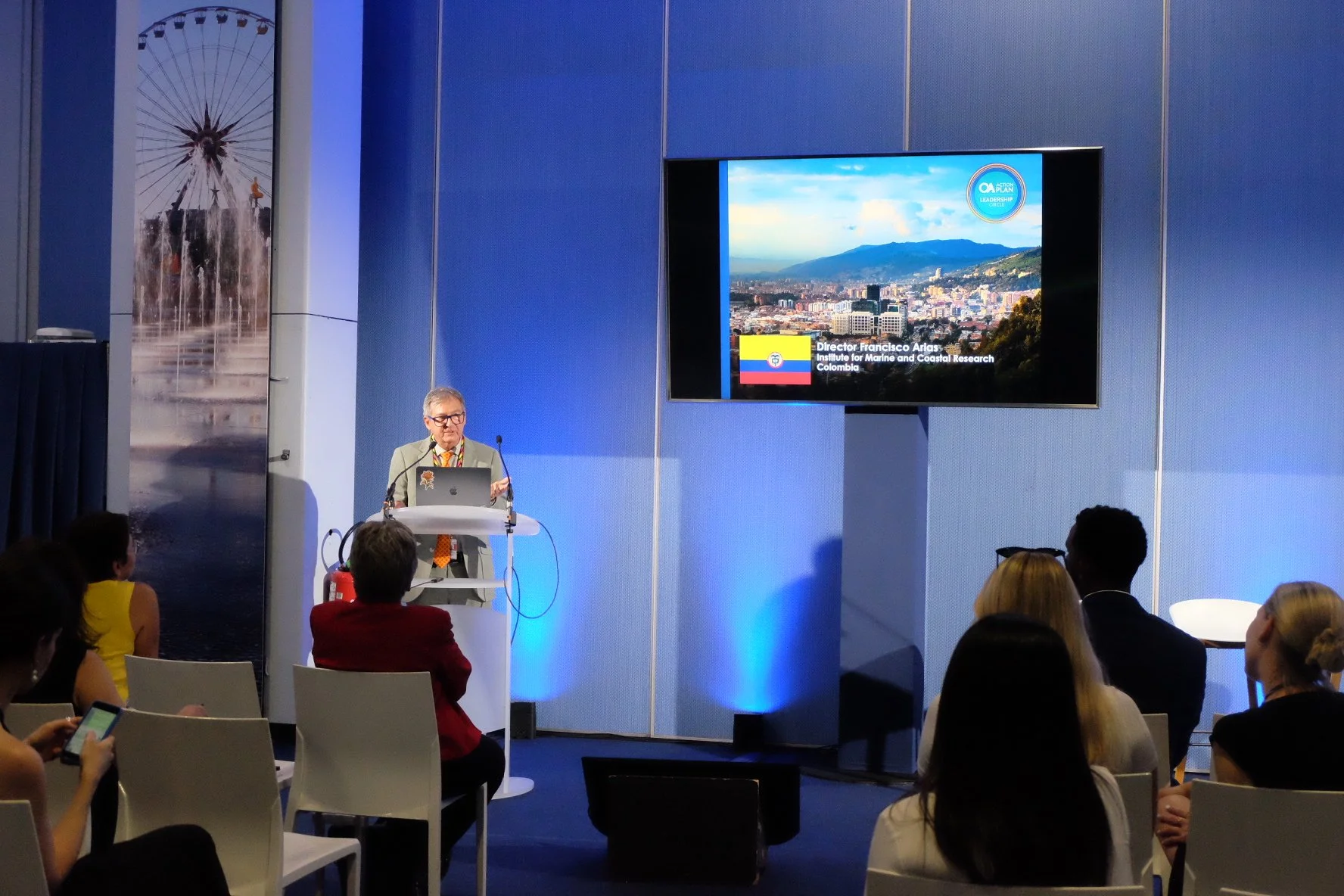Taking Action on Ocean Acidification in Latin America and the Caribbean
Ocean acidification has implications for Latin American and Caribbean economies that rely on fisheries, aquaculture, and tourism, potentially leading to revenue losses, job insecurity, and increased vulnerability of coastal communities that depend on marine resources for their livelihoods.
In 2022, the region produced approximately 17.7 million tons of fishery and aquaculture products, representing 8% of the world’s production. Sustaining this productivity requires robust science and policy collaboration to safeguard communities and blue economy.
Regional ocean acidification networks like Latin American and Caribbean OA Monitoring Network (LAOCA) and the Research Network of Marine-Costal Stressors in Latin America and the Caribbean (REMARCO) are at the forefront of this effort. Together, they are working to fill science gaps and provide actionable knowledge for policy makers, seafood growers and local leaders.
They are working to:
Map hotspots of acidification to understand where/ when ocean and coastal acidification will worsen around the region.
Assess biological impacts to keystone species like shrimp, oysters, scallops, tuna, hake, anchoveta, as well as squid, and prawns.
Conduct vulnerability assessments for Pacific, Atlantic and Caribbean regions.
Promote community-based monitoring programs and citizen science initiatives to foster inclusive decision-making and empower local communities in the design and implementation of adaptation and mitigation measures.
Work with national governments and seafood growing communities to explore appropriate mitigation, adaptation, resilience strategies.
For governments and communities to take action on ocean acidification, there must be an increased investment in science that connects to policy and management priorities across the region.
Governments must ensure that domestic policies related to climate change, ocean management and blue economies integrate and reflect ocean and coastal acidification information across key outcomes for a healthier ocean and people.
Recognizing this need, the Latin America Stakeholders Working Group was launched in 2025. This initiative aims to co-develop an “Ocean Acidification Policy Communications” project for uptake by national governments and financing bodies across Central and South America, with an emphasis on Pacific Rim and Caribbean regions.
Want to learn more?
We are excited to share the upcoming release of a short film, “Changing Waters: Time for Action on Ocean Acidification,” featuring OA Alliance members’ stories and experiences tackling ocean acidification and climate-ocean change in Latin America and the Caribbean.
This character-led short film follows real individuals from government, indigenous communities, seafood industry, and scientists calling for action to minimize and address ocean acidification
Filmed in Washington State, Colombia, and Fiji, the film uses personal storytelling and on-the-ground projects to highlight ocean acidification science and policy leadership. It also explores global equity issues when it comes to assessing risks and responding to acidification with local solutions. The film aims to inspire broader awareness of this work and accelerate action at a critical moment for climate policy and financing around the world.
The premier of “Changing Waters: Time for Action on Ocean Acidification" will take place at the upcoming UN Climate Conference COP30) , occurring November 10-22 in Belem, Brazil.
Watch the teaser below and stay connected with the OA Alliance to join the premier in person or virtually!



